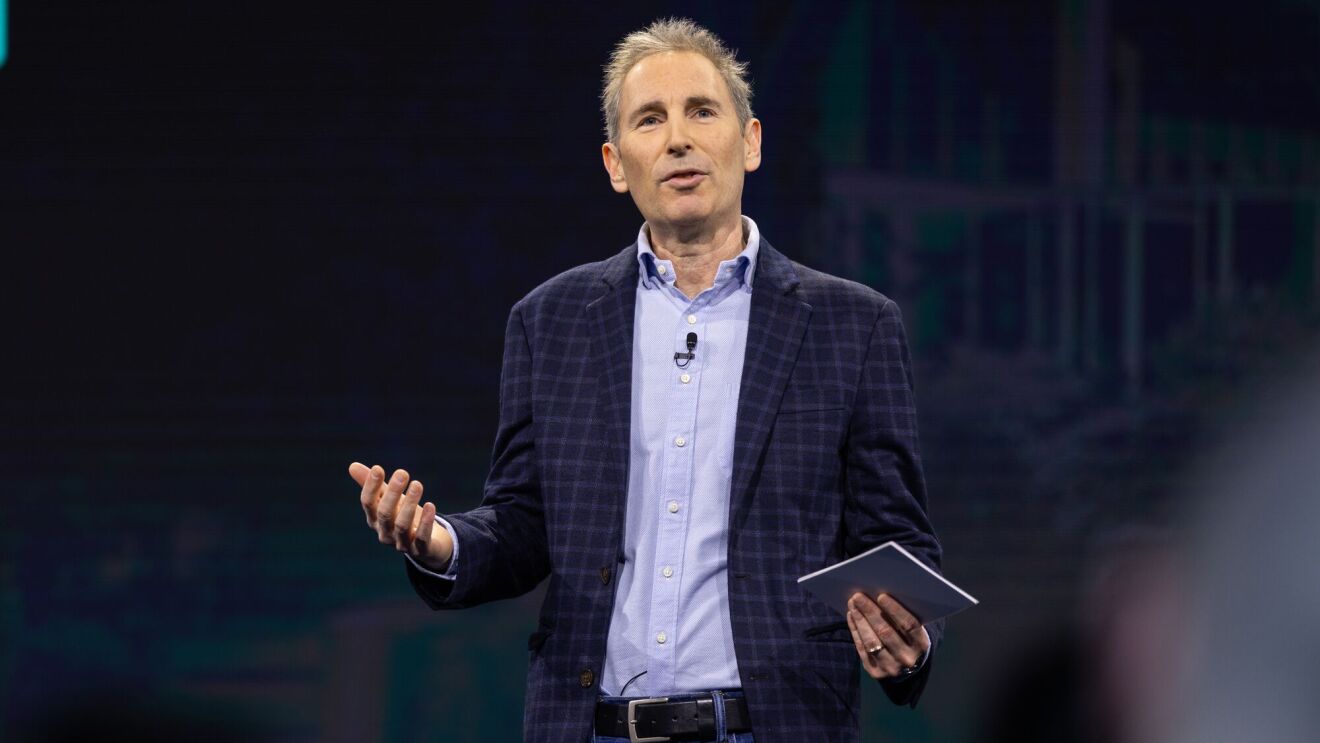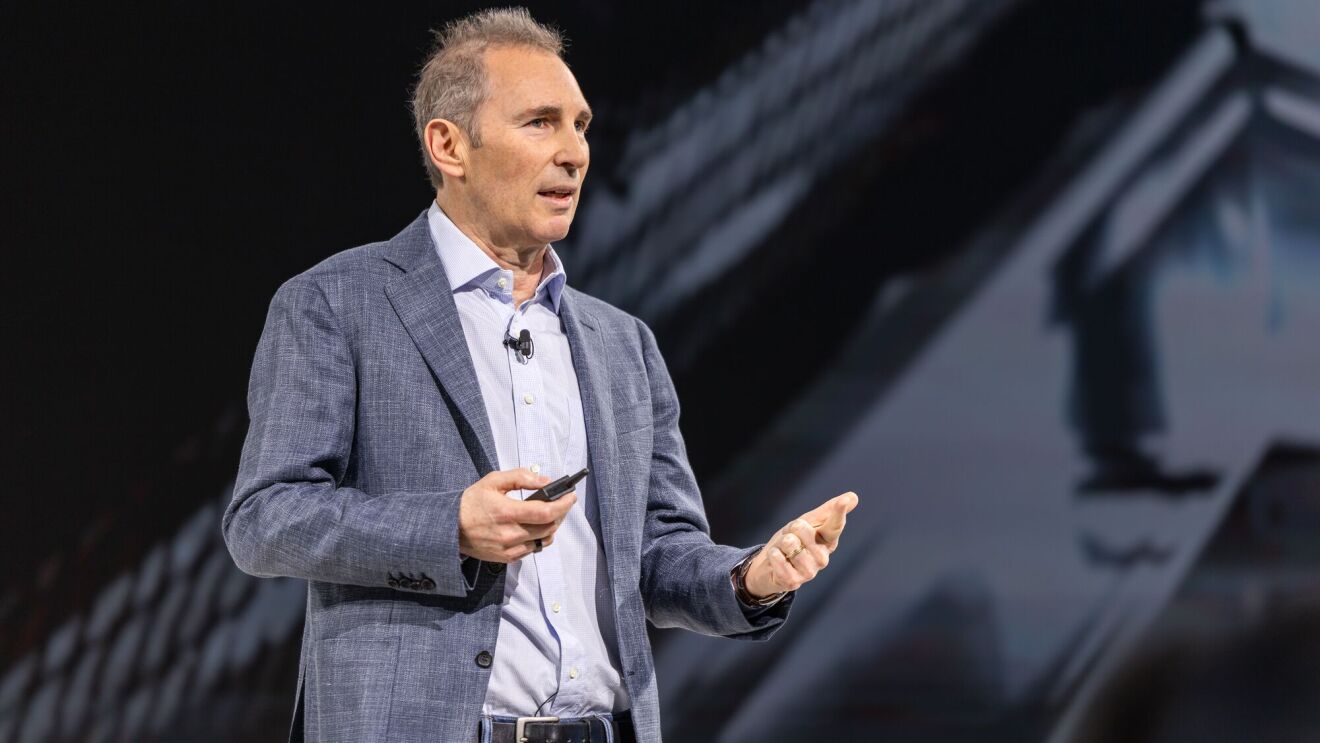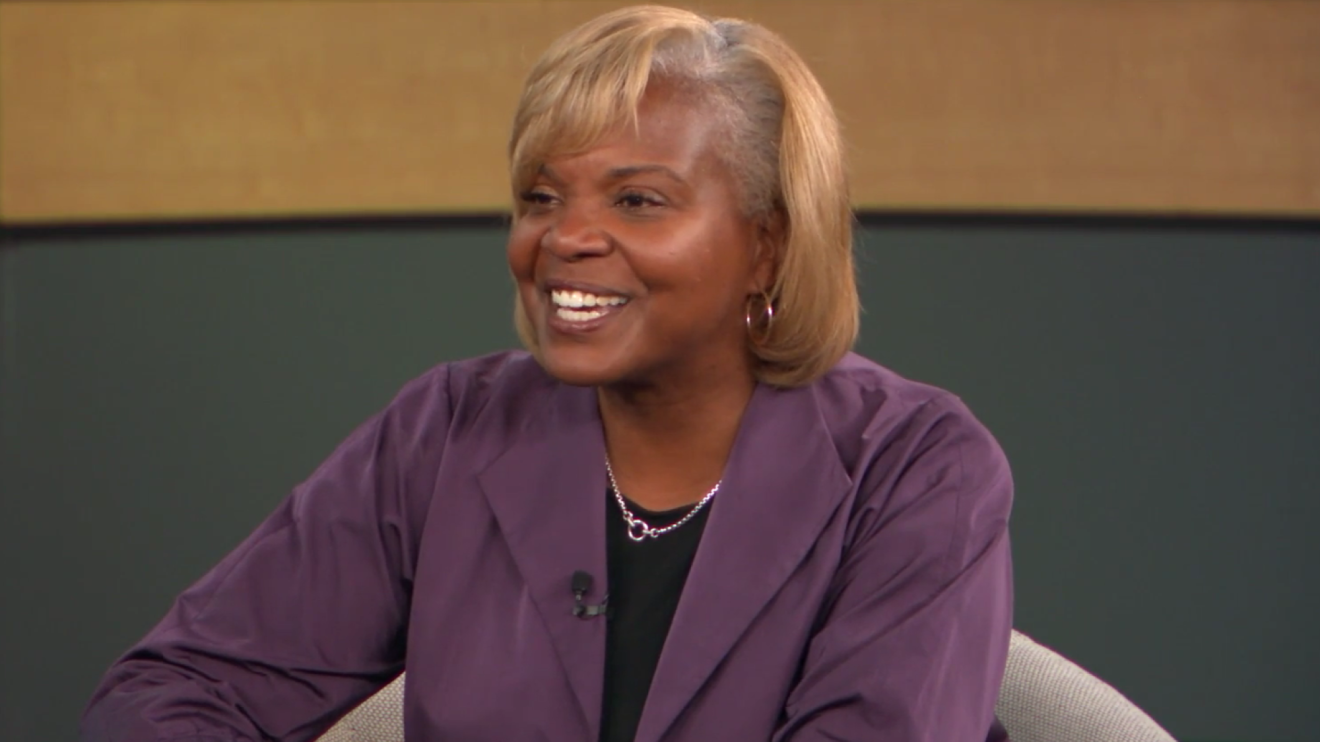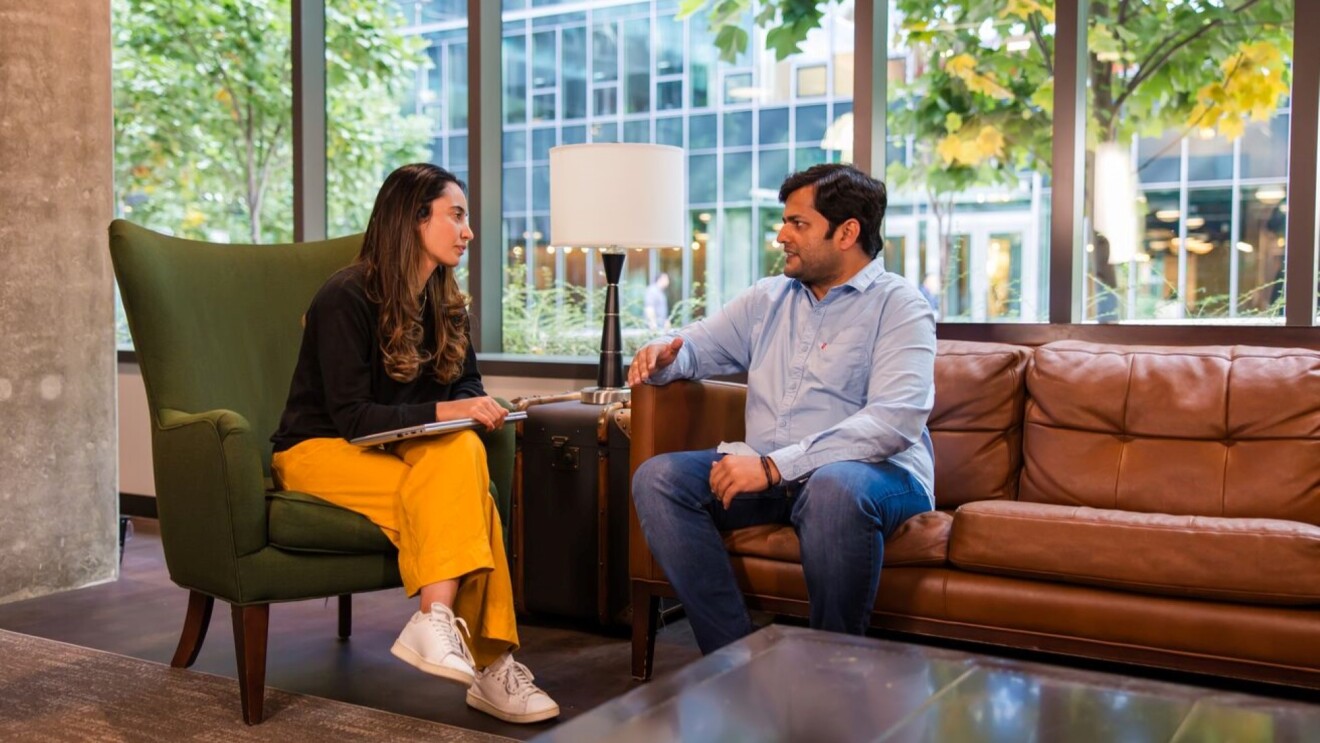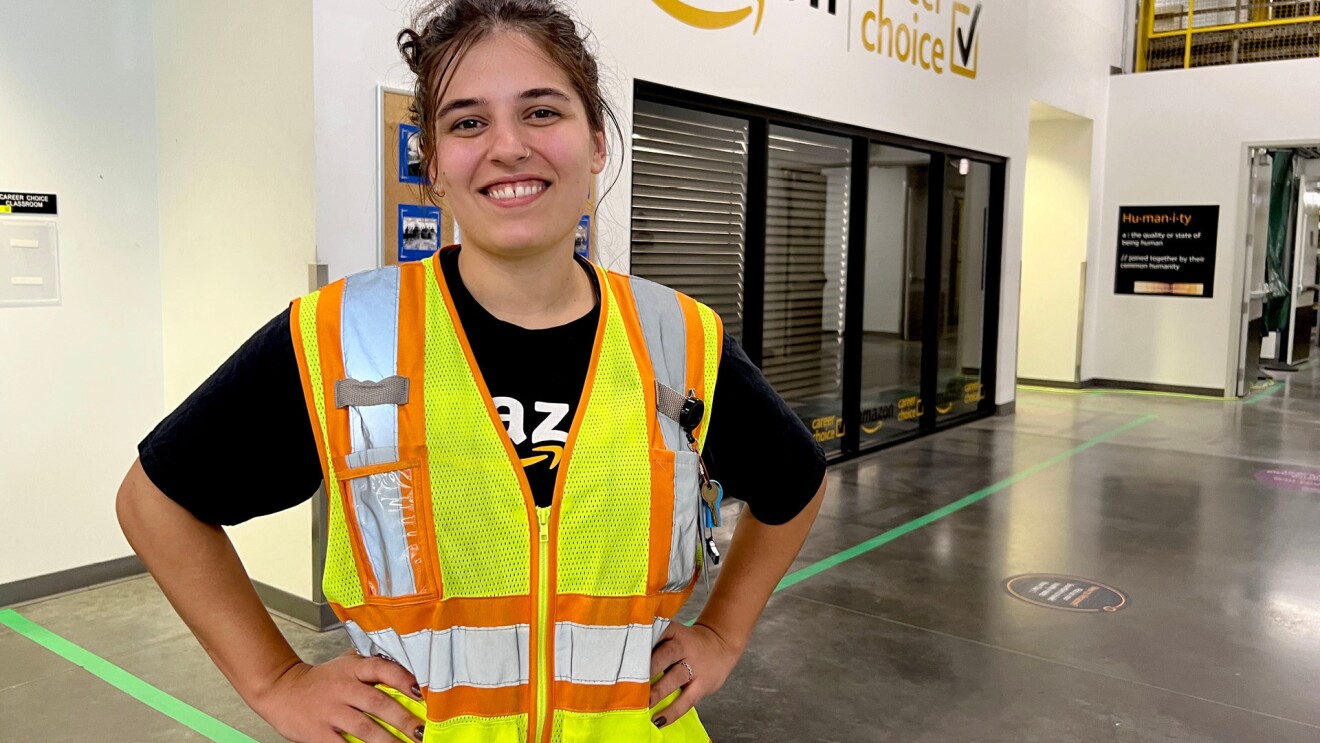After serving in the U.S. military and federal government for nearly 13 years, Matt Williams was looking for his next opportunity when he found himself at Amazon. “The thing about Amazon is your military skills translate, and that makes the company a natural fit,” Williams said.
Williams is a senior program manager on Amazon’s Global Military Affairs team, which drives initiatives that help veterans in a myriad of ways—from the company’s commitment to hire over 100,000 U.S. veterans and military spouses by 2024—to using machine learning to aid suicide prevention. Williams and his close colleagues specifically focus on Program Honor, which is dedicated to improving the lives of veterans and their families by helping solve some of their community’s biggest challenges.
We recently spoke with Williams about his time in the military, how that’s informed his work, and how he and his team give back to those who served our country.
Tell us about your role in Program Honor.
For background, Program Honor is the community engagement team within Amazon’s Global Military Affairs. We look to leverage as much of Amazon as we can—from technology and devices to inventory, food, and more—to support the veteran community through partnerships with veteran nonprofits. My colleagues focus on mental health and suicide prevention, as well as food insecurity and homelessness, while I focus on supporting veterans with disabilities.
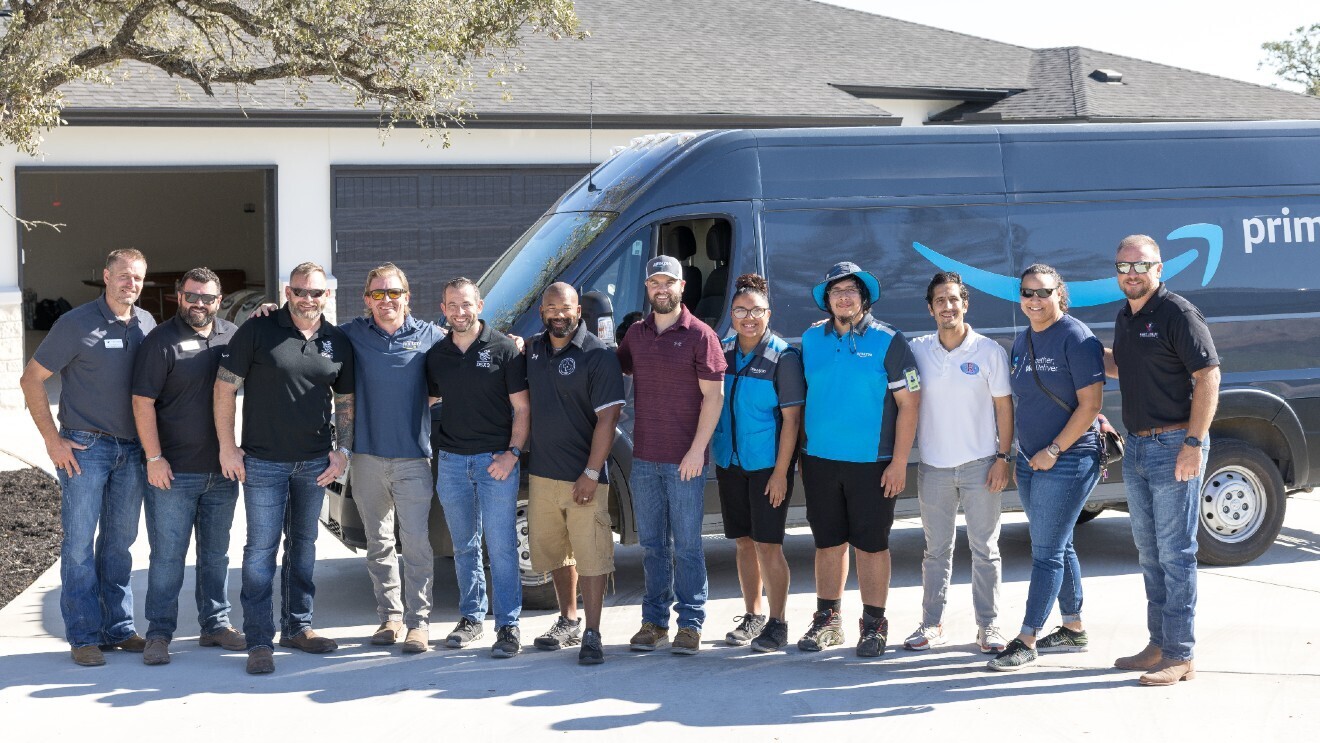 Matt Williams alongside Amazon employees and members of the Gary Sinise Foundation who have supported the Gary Sinise Foundation’s R.I.S.E. program.
Matt Williams alongside Amazon employees and members of the Gary Sinise Foundation who have supported the Gary Sinise Foundation’s R.I.S.E. program.We support organizations, like the Gary Sinise Foundation, Blind Veterans UK, and other nonprofits around the world, to more easily give back to the veteran community. We help nonprofits fill their gaps so they can better assist those who served our country and improve their quality of life.
Can you share an example where you’ve helped bring that kind of support to life?
A great example is our work with the Gary Sinise Foundation, which has a program called R.I.S.E. (Restoring Independence Supporting Empowerment). They build specially adapted, mortgage-free, smart homes for severely wounded veterans and first responders. We support this program by donating Amazon smart home devices, food from Amazon Fresh, and home goods from Amazon Home, among other products, to help ensure these veterans feel right at home in their new smart home.
One particular story that comes to mind is of Romulo “Romy” Camargo, a quadriplegic Army Green Beret for whom the foundation built a home this past summer near Tampa Bay, Florida. When you’re a quadriplegic, your diaphragm is often impacted too. Romy can only speak a few words at a time. This means giving voice services, like Alexa, a quick request isn’t always possible.
Our Alexa Accessibility team invented a feature called Adaptive Listening, which gives customers, like Romy, more time to finish speaking before Alexa responds. With this feature enabled, Romy can now ask Alexa via his connected smart home devices to open the blinds, turn on the lights, or turn on the TV. He and his family also speak in both Spanish and English. With Alexa’s Multilingual Mode, Alexa can respond to their requests in both languages. That’s powerful. We’re helping make homes more accessible with technology like Alexa to ultimately help increase independence.
01 / 02
That’s why we partnered with the Gary Sinise Foundation to support the R.I.S.E. program. I can’t think of a better example to help restore someone’s independence than to give them the ability to turn on the lights by themselves again.
How did your military background prepare you for your work today?
I must say working at a company is different than working for the government or the military. However, there are leadership principles that apply to them both. Bias for action is one, and customer obsession is another. Amazon is always working backwards from the customer, and when you go to military training courses, everything involves backwards planning—you start from the end result you want to accomplish and work backwards. I’ve never worked for another company, but so much has felt familiar in the way we plan and execute operations, and this has made for a natural transition here at Amazon.
Having a military background has definitely helped in my specific role as well. I’m not only a veteran, but I was also a military spouse. My wife is a veteran who now works at Amazon too. So, I already know some of the intrinsic stuff for my work in the veteran support space. I know what it’s like to go on deployments; I’ve felt what it’s like to have my spouse be gone. In Global Military Affairs, when we talk about the military community, the military family members—spouses and kids—are just as important as the veterans themselves. These parts of my identity help me connect with many people I meet in my day-to-day work.
What’s your favorite part of what you do?
I get to work with one of the world’s most notable companies to support people in need. Sometimes, I pinch myself that I get to work at a company like Amazon, and I get to help the community I came from. It’s incredible how many people are collectively taking on these challenges at Amazon. It makes me proud to work here. We don’t just say we’re doing stuff; we actually do it.
Learn more about Amazon’s Military initiatives and opportunities. Hear from leaders with Amazon Military Affairs and Warriors at Amazon who discuss Amazon's support of the military community:
Trending news and stories
- Amazon CEO Andy Jassy shares the simple question that helps power Amazon's innovation
- Amazon will share its Q1 2025 earnings on May 1
- The Amazon Book Sale is back April 23-28 with thousands of deals across books, select devices, and memberships
- Amazon CEO Andy Jassy shares how AI will reinvent ‘virtually every customer experience we know’





